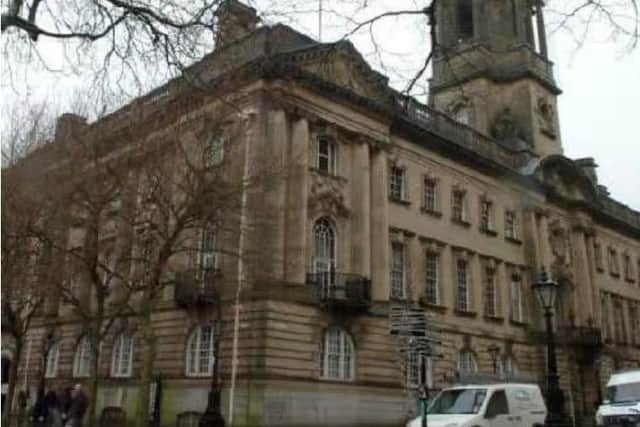Prosecutor compares energy sales techniques in Andy Pilley fraud trial to 'dishonest used car salesmen'
and live on Freeview channel 276
Fleetwood Town owner Mr Pilley, his sister Michelle Davidson Davidson and co-defendants Lee Qualter and Joel Chapman are facing various fraud allegations in a trial in Court 2 of the old Sessions House in Lancaster Road, Preston.
The case revolves around the alleged mis-selling of energy supply contracts through Mr Pilley's firm Business Energy Solutions (BES) and other companies.
Advertisement
Hide AdAdvertisement
Hide AdProsecutors say that while sales teams were not told to make fraudulent claims and mis-sell, their bosses Mr Pilley and his co-accused ‘turned a blind eye’ even though they knew it was happening, and Mr Pilley and Ms Davidson profited from the successful sales achieved, with a huge multi-million turnover.


It is a complex case involving various businesses which were controlled by Mr Pilley and Ms Davidson, but it is alleged that sales teams working for them were pretending to be independent while persuading customers to sign up to contracts which benefited BES financially.
Prosecutor Mark Thomas KC said there were three types of calls which sales teams made.
The opening ‘front end’ calls were the ones in which it is alleged fraudulent claims were made and involved persuading customers – small businesses – to opt for contacts with energy suppliers run by Mr Pilley.


Advertisement
Hide AdAdvertisement
Hide AdThe second, follow-up calls , called ‘contract calls’, would be made by an experienced sales person or ‘legend’, which involved the customer confirming and signing up to the contract they’d agreed to in the first call.
The final call involved, the ‘comfort call’, was to ensure the customer was happy.
However, Mr Thomas said, while audio recordings would be made available of the ‘clean’ contract phone call and the comfort calls in the event of a complaint, there was no obligation in the industry for the ‘front end calls’ to be recorded.
In the event of complaints, the ‘front end’ recording were never made available – even though BES did have them.
Advertisement
Hide AdAdvertisement
Hide AdMr Thomas said: "It’s similar to a second hand car dealer – you speak to the salesman on the forecourt and and the unscrupulous salesman makes claims that the car’ had one careful owner, there’s only 20,000 miles on the clock and it’s never been in an accident.
"So the customer is persuaded on the forecourt to sign the contract. Later the customer discovers the true history of the car – it’s been written off in an accident, and there’s 100,000 miles on the clock, the mileage has been altered.
"No one wrote down the lies of the salesman on the forecourt and it’s not written in the contract.
"It’s no different from these others – a dishonest salesman but there’s nothing in the contract in the event of claims of fraud.”
However, he said it was still fraud.
Advertisement
Hide AdAdvertisement
Hide AdIt is alleged that this approach was most prevalent in “fast track” cases where the salesperson would make fraudulent claims to snatch a contact away from a rival supplier by pretending there was a problem with the deal – and suggest BES instead.
However, Mr Thomas said that despite the claims that the sales teams were independent brokers, a trail of emails they led back to Mr Pilley – and they also proved he was aware of complaints in the sales techniques but did not discipline the salesperson responsible.
And Mr Thomas said it belied claims by Mr Pilley that he did no know recordings of the ‘front end’ calls existed.
He said: “The salesman was caught out – but the email messages said it was just “standard fast track’ practice.”
Advertisement
Hide AdAdvertisement
Hide AdMr Pilley, 52, from Thornton, is facing two counts of running a business with the intention of defrauding creditors, one count of false representation and one count of being concerned with the retention of criminal property.
Ms Davidson, 49, of Holmefield Avenue, Cleveleys faces two counts of running a business with the intention of defrauding creditors and one of being concerned with the retention of criminal property.
Lee Qualter, 52, of Holmefield Avenue, Cleveleys, faces one allegation of running a company with the intent to defraud.
Joel Chapman, 38, of Kingston Road, Willerby, Yorkshire, who also had a Poulton address, is accused of aiding false representation by coercing staff to dupe customers.
All four deny the allegations against them.
(proceeding)
